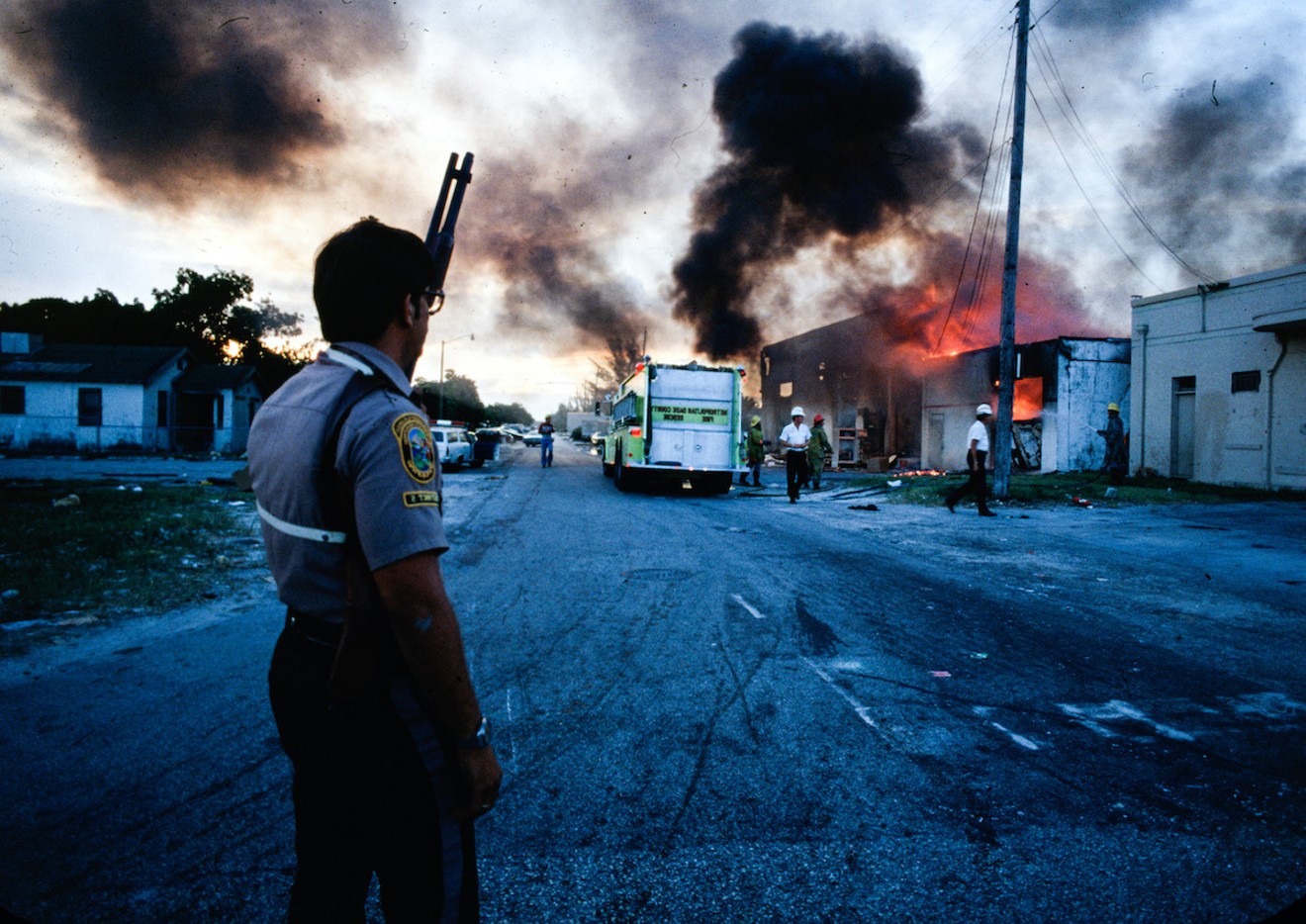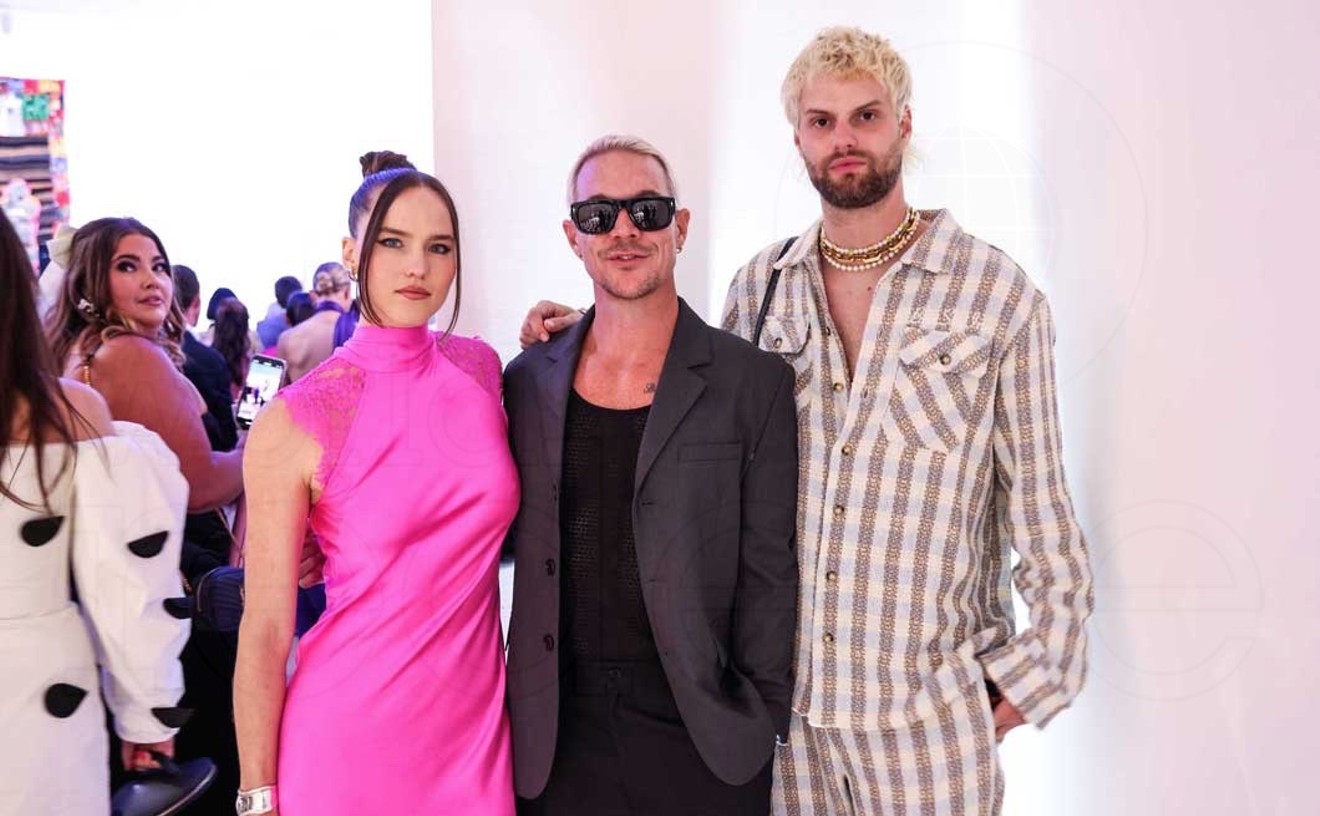This past December marked the 40th anniversary of the death of Arthur McDuffie.
McDuffie, an insurance salesman and avid motorcyclist known to some as "Bubba," was beaten into a coma by a group of Miami-Dade County police officers after a chase in December 1979. McDuffie, who was black, succumbed to his injuries days later.
Five months after that, the all-white group of officers was acquitted of all charges by an all-white jury in a Tampa courthouse. The court decision prompted one of the largest riots in Miami-Dade history. The National Guard quickly intervened, and the three-day riot ended — but along the way, 18 people died, 350 were injured, and 600 were arrested.
Haitian filmmaker Dudley Alexis wanted to capture the case in a documentary. While researching the history of policing in Miami, Alexis was appalled to learn how little the McDuffie story was talked about. The ensuing film he made about the riots, When Liberty Burns, will screen at the 2020 Miami Film Festival.
"It's a story Miamians don't like to revisit, which causes the story to be hidden," Alexis says.
The film looks at the death of McDuffie while examining the history of race relations in Miami. Producer Femi Folami-Browne considers the movie a love letter to McDuffie and wanted to go beyond his role as a catalyst for the riots. When Liberty Burns places an immense focus on who McDuffie was, and the filmmakers wanted to give voice to the ones rarely given room to speak — McDuffie's loved ones.
Other than McDuffie's family and close friends, the film features former Miami-Dade law enforcement officers, government officials, and various black Miami historians. The film took three years to complete before landing a spot at the Miami Film Festival.
Folami-Browne and Alexis wanted to be nothing but brutally honest with When Liberty Burns. Persuading McDuffie's relatives and the law enforcement officials to relive their experiences — and seeing their pained expressions throughout the interviews — was one of the most difficult, yet most rewarding, parts of the documentary process.
Folami-Browne was visiting Miami around the time of the riots after living in Nigeria for nine years. She had grown up in Liberty City, so McDuffie's death remained in her consciousness.
Alexis met Folami-Browne during a screening of one of his previous projects. Folami-Browne's proximity to and knowledge of Miami-Dade's racial disparity led her to get involved with making the documentary.
"We were very sensitive to how the movie would be received and how we would tell the story," Folami-Browne says. "We want it to be a process of truth and reconciliation but also a way to examine what happened so it won't happen again."
McDuffie's death caused a rift between citizens and their government, Folami-Browne says. Miami's black community was still suffering from the disenfranchisement of Overtown and the aftermath of segregation and Jim Crow. McDuffie's death was the "straw that broke the camel's back."
Alexis and Folami-Browne wanted to examine the underlying cause of the mistrust between citizens and police in Miami and other areas, such as Ferguson, Missouri, in hopes of stirring conversations about the issue.
During the research phase, one person who stood out to the filmmakers was Linda Saunders, an internal affairs investigator with the Miami-Dade Police Department. She didn't learn of McDuffie's death until days later when a Miami Herald reporter called to ask a question.
Sanders, a black woman in a department that was predominantly white and male, was placed in an uncompromising position during the majority of the case. Her story was just one of a few that unveiled the level of deceit and discrepancy, Folami-Browne says.
"The emotion she still has as a result of hearing of the death rang vividly in her mind because she was almost moved to tears in the interview," Folami-Browne says. "It was Christmas, and she was with her family when she realized that McDuffie had died."
When Liberty Burns. Screening at the Miami Film Festival at 3 p.m. Saturday, March 7, and 12:45 p.m. Sunday, March 14, at Silverspot Cinema, 300 SE Third St., Miami, 305-536-5000; silverspot.net. Tickets cost $16 via miamifilmfestival.com.
[
{
"name": "Air - MediumRectangle - Inline Content - Mobile Display Size",
"component": "19274298",
"insertPoint": "2",
"requiredCountToDisplay": "2"
},{
"name": "Editor Picks",
"component": "17482312",
"insertPoint": "4",
"requiredCountToDisplay": "1"
},{
"name": "Inline Links",
"component": "18711090",
"insertPoint": "8th",
"startingPoint": 8,
"requiredCountToDisplay": "7",
"maxInsertions": 25
},{
"name": "Air - MediumRectangle - Combo - Inline Content",
"component": "17482310",
"insertPoint": "8th",
"startingPoint": 8,
"requiredCountToDisplay": "7",
"maxInsertions": 25
},{
"name": "Inline Links",
"component": "18711090",
"insertPoint": "8th",
"startingPoint": 12,
"requiredCountToDisplay": "11",
"maxInsertions": 25
},{
"name": "Air - Leaderboard Tower - Combo - Inline Content",
"component": "17482313",
"insertPoint": "8th",
"startingPoint": 12,
"requiredCountToDisplay": "11",
"maxInsertions": 25
}
]












